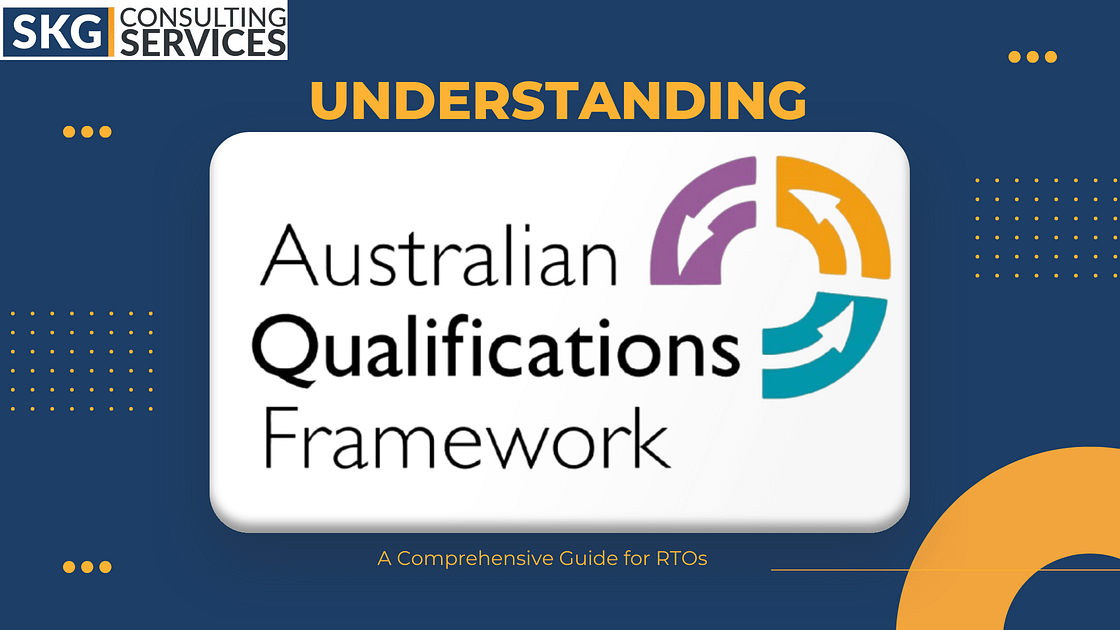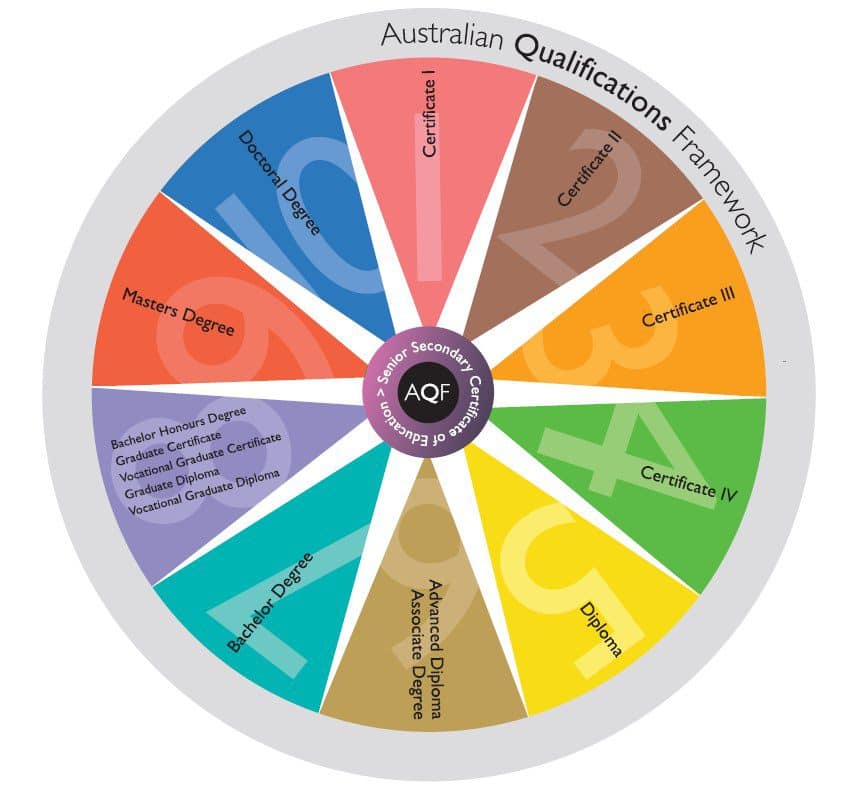Understanding the Australian Qualifications Framework (AQF): A Comprehensive Guide for RTOs

Understanding the Australian Qualifications Framework (AQF): A Comprehensive Guide for RTOs
The Australian Qualifications Framework (AQF) serves as the cornerstone of Australia’s vocational education and training (VET) sector, ensuring that qualifications across education systems are nationally consistent and recognized. For Registered Training Organisations (RTOs), understanding and complying with the AQF is critical for delivering quality education, achieving accreditation, and facilitating seamless learner progression.
What is the Australian Qualifications Framework (AQF)?
The AQF is the national policy framework for regulated qualifications in the Australian education and training system. It integrates qualifications from schools, VET, and higher education into a cohesive structure, ensuring alignment and consistency across all education sectors.

Key Features of the AQF:
Unified Framework
National Consistency
Recognition and Portability
Combines qualifications across diverse educational pathways.
Establishes uniform standards for learning outcomes.
Facilitates seamless transitions between education sectors and career pathways.
AQF Levels Relevant to RTOs
The AQF consists of 10 levels that define the complexity and depth of knowledge and skills at each stage. While the framework spans from basic education to doctoral studies, RTOs primarily focus on AQF levels 1 to 6, which are foundational to vocational education and training.
AQF Level 1: Certificate I
- Overview: Entry-level qualification providing basic skills for initial work, community participation, or further learning.
- Skills and Knowledge: Foundational knowledge and operational skills applied in defined contexts.
- Application: Ideal for entry-level roles or as a preparatory step for higher qualifications.
AQF Level 2: Certificate II
- Overview: Builds on Certificate I, offering broader skills suitable for operational roles.
- Skills and Knowledge: Enhanced ability to perform routine tasks and solve predictable problems.
- Application: Designed for basic operational roles and as a pathway to intermediate qualifications.
AQF Level 3: Certificate III
- Overview: Prepares learners with technical and theoretical knowledge for skilled work.
- Skills and Knowledge: Competency in complex tasks and problem-solving in diverse contexts.
- Application: Required for trade and technical roles, often linked to apprenticeships.
AQF Level 4: Certificate IV
- Overview: Offers specialized knowledge for higher-level responsibilities and further education.
- Skills and Knowledge: Advanced theoretical and practical skills for supervising and managing operations.
- Application: Suitable for leadership, technical, and preparatory higher education roles.
AQF Level 5: Diploma
- Overview: Provides in-depth theoretical and practical knowledge for professional or paraprofessional roles.
- Skills and Knowledge: Analytical and applied knowledge across various contexts.
- Application: Suitable for management roles and as a prerequisite for higher education pathways.
AQF Level 6: Advanced Diploma/Associate Degree
- Overview: Focuses on advanced technical and theoretical knowledge for specialized roles.
- Skills and Knowledge: Comprehensive skills applicable in professional practice or further academic study.
- Application: Often used as a bridge to bachelor degree programs or high-level technical positions.
The Importance of AQF Compliance for RTOs
Quality Assurance and Accreditation
- Maintaining Standards: Ensures that qualifications meet national benchmarks.
- Regulatory Compliance: AQF alignment is mandatory for accreditation by bodies like the Australian Skills Quality Authority (ASQA).
Educational Pathways
- Smooth Transitions: Facilitates learner progression across education sectors.
- Recognition of Prior Learning (RPL): Allows learners to gain credit for prior studies or work experience, enhancing flexibility.
Developing AQF-Compliant Training Packages
Alignment with Industry Needs
- Engagement with Stakeholders: Collaborate with industry experts to ensure training aligns with workforce requirements.
- Periodic Updates: Regularly review and adapt training packages to remain relevant and compliant.
Structured Curriculum Design
- Defined Learning Outcomes: Clearly outline measurable and achievable objectives for each AQF level.
- Assessment Strategies: Develop tools that effectively evaluate learning outcomes and demonstrate competency.
Keeping Up with AQF Updates
Stay Informed
- Monitor changes to the AQF to maintain compliance and stay ahead of regulatory updates.
- Participate in AQF reviews and industry consultations to stay engaged with evolving standards.
Continuous Improvement
- Feedback Systems: Use input from learners, trainers, and industry stakeholders to refine training practices.
- Professional Development: Invest in ongoing education for trainers to ensure they stay current with AQF and industry standards.
Practical Tips for RTOs
- Understand AQF Levels: Familiarize yourself with AQF requirements and align training and assessments accordingly.
- Develop Comprehensive Training Packages: Include detailed learning resources, support materials, and compliant assessment tools.
- Engage with Industry: Build strong connections with stakeholders to ensure training remains industry-relevant.
- Implement Quality Assurance: Conduct internal audits and use robust feedback mechanisms to uphold AQF compliance.
- Support Trainer Development: Provide opportunities for trainers to enhance their skills and stay aligned with evolving standards.
Conclusion
The Australian Qualifications Framework (AQF) is a critical component of delivering quality education in Australia’s VET sector. By adhering to AQF standards, RTOs can ensure compliance, maintain accreditation, and provide learners with meaningful pathways to further education and employment.
At SKG Consulting, we specialize in supporting RTOs to navigate AQF requirements effectively. From developing compliant training packages to implementing robust quality assurance systems, we help RTOs deliver excellence in education and training.
Contact us today to learn how we can assist your RTO in achieving AQF compliance and delivering top-tier training outcomes.
